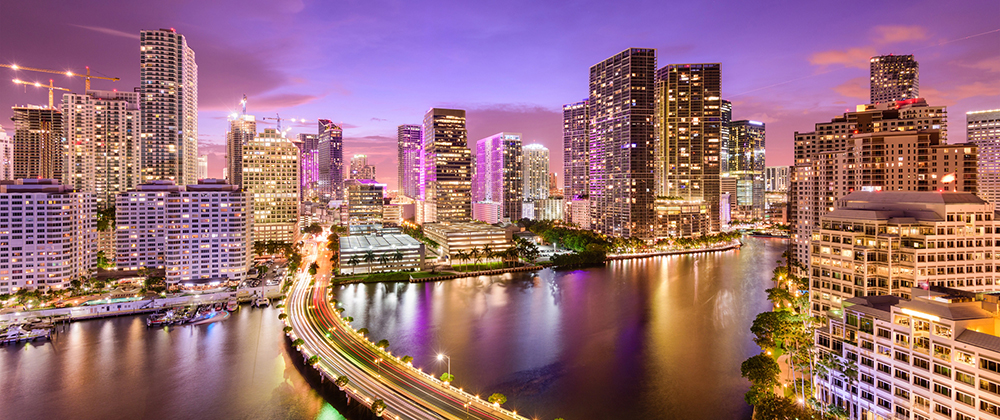Legal Help for a Miami Asylum Seeker
Politicos in Florida and Washington, D.C. have painted people who are fleeing persecution in their home countries and seeking asylum in the U.S. in a negative light. Unfortunately, lawmakers on both sides of the aisle have purposefully muddied the waters about asylum law in the U.S. and the process people go through to request it. Instead of working together to pass meaningful immigration reform, lawmakers continue to attempt to create obstacles for those who are seeking asylum because of the reasonable fear they have about persecution in their home countries. Here’s some information about the asylum process from the Miami immigration lawyers at Pozo Goldstein to cut through the disinformation.
1. Our Laws Protect the Ability to Seek Asylum as a Human Right
Following World II and the Holocaust, multiple countries agreed to allow people fleeing dangers in their home countries to enter and seek protection. In 1948 with the Universal Declaration of Human Rights, the Refugee Convention of 1951, and the Refugee Convention Protocol of 1967, the right to asylum was recognized.
In 1980, the U.S. passed the Refugee Act to protect people fleeing persecution based on their political beliefs, membership in a particular group, nationality, religion, or race. This federal law is designed to prevent people with legitimate fear of persecution from being returned to their home countries where they would be in danger.
2. Before Someone Will be Granted Asylum, They Must Prove Their Case
Seeking asylum is not a simple process. Instead, asylum-seekers must prove their cases upon arrival at the border or in another U.S. port of entry. Lawmakers who claim asylum-seekers are breaking the law are not telling the truth. People can seek asylum legally by asking to be screened for asylum at a U.S. port of entry or entering the country without inspection and then requesting asylum based on a fear of persecution.
When someone undergoes inspection when seeking asylum, they must undergo security checks and criminal background investigations. After that, they must then go through a long process that involves several government agencies to prove their fear of persecution is legitimate and well-founded. People whose asylum cases are denied are deported. Despite these laws, those who have sought asylum at the border have been denied the right to seek asylum under these normal rules and have instead been sent back to Mexico to wait.
3. Policies that Attempt to Interfere with the Right to Asylum Don’t Stop People from Seeking it at the Border
Former President Trump enacted several policies to try to end the right to seek asylum at the border. When President Biden ran for office, he promised to restore a fair system for seeking asylum but has not fully reversed the policies implemented under Trump. For instance, Title 42 was used by the Trump administration to expel people seeking asylum at the border without allowing them to ask for protection. Under Biden, this policy is still in effect and has led to thousands of cases involving violence against those who have been expelled to Mexico.
Lawmakers on both sides of the aisle have tried to justify these restrictive policies by claiming they help to deter people from coming to the border. However, these policies have failed to stop people from arriving at the border. Instead, migrants have reacted to Title 42 by attempting to cross the border multiple times. Instead of decreasing in numbers, there has been a sharp uptick in the number of people seeking asylum under both former President Trump and current President Joe Biden.
4. Asylees Tend to Become Important Members of Their Communities in the U.S.
To receive status as asylees, people must undergo numerous difficult challenges, including long and dangerous journeys, unwarranted detention by the Immigration and Customs Enforcement (ICE), and being far away from family members and friends while they navigate the process alone.
Despite the portrayals of asylees by politicians, most are eager to become fully self-supporting, valuable members of their communities. Many asylees have opened businesses, created jobs, become advocates for the rights of others, and contributed billions of dollars in taxes to the government. A study found that asylees contribute more than $19,000 per year to the economy. If the number of asylum seekers was reduced by 25%, the study found the U.S. would lose $20.5 billion over five years.
Talk to a Miami Immigration Lawyer
If you are a Miami asylum seeker, you should reach out to the experienced immigration attorneys at Pozo Goldstein. Our legal team has years of experience fighting for the rights of people dealing with immigration issues and includes former immigration prosecutors and a former immigration judge. To learn more about the help we can offer as you navigate the process, contact us today at (305) 856-0400.




